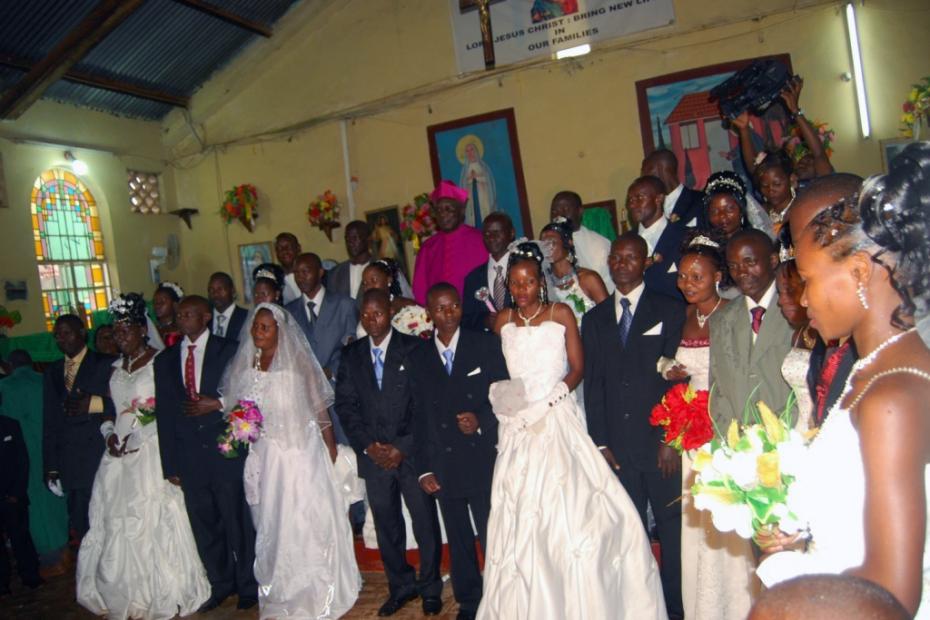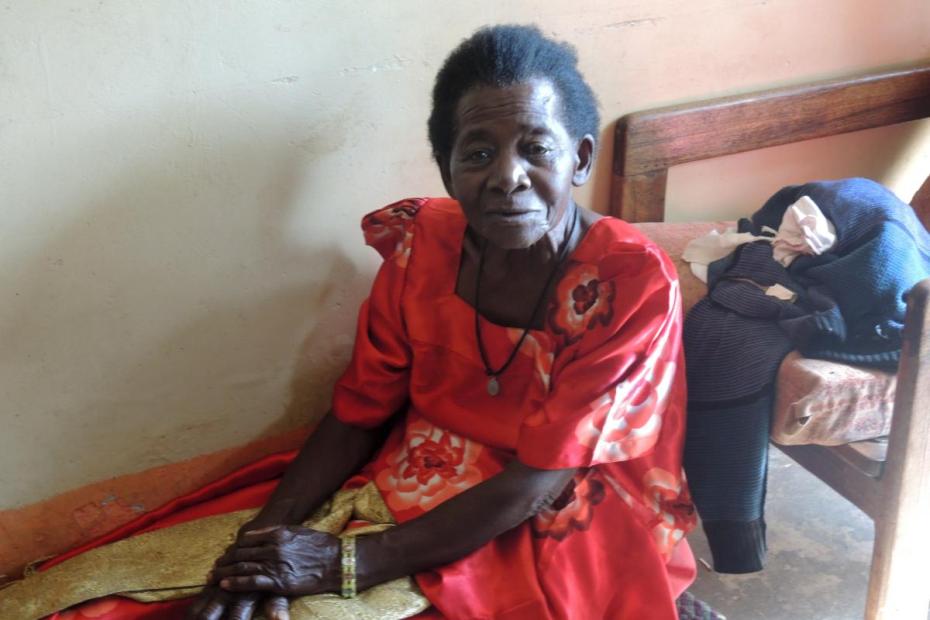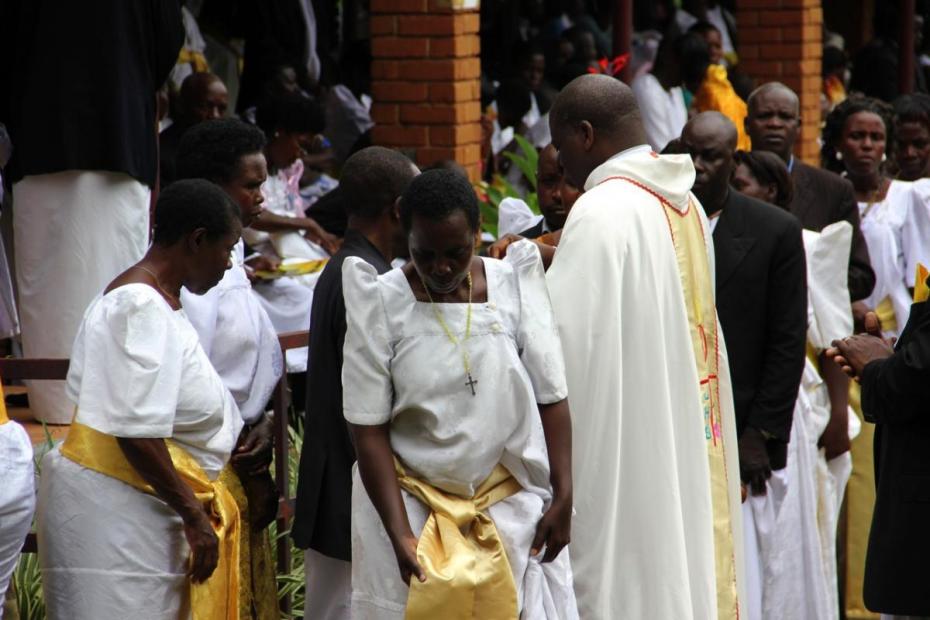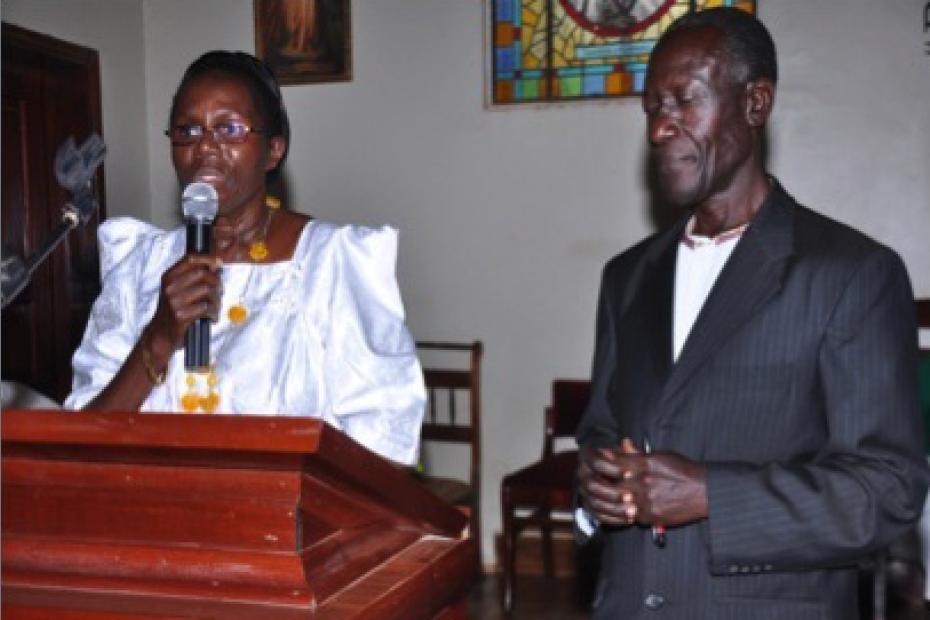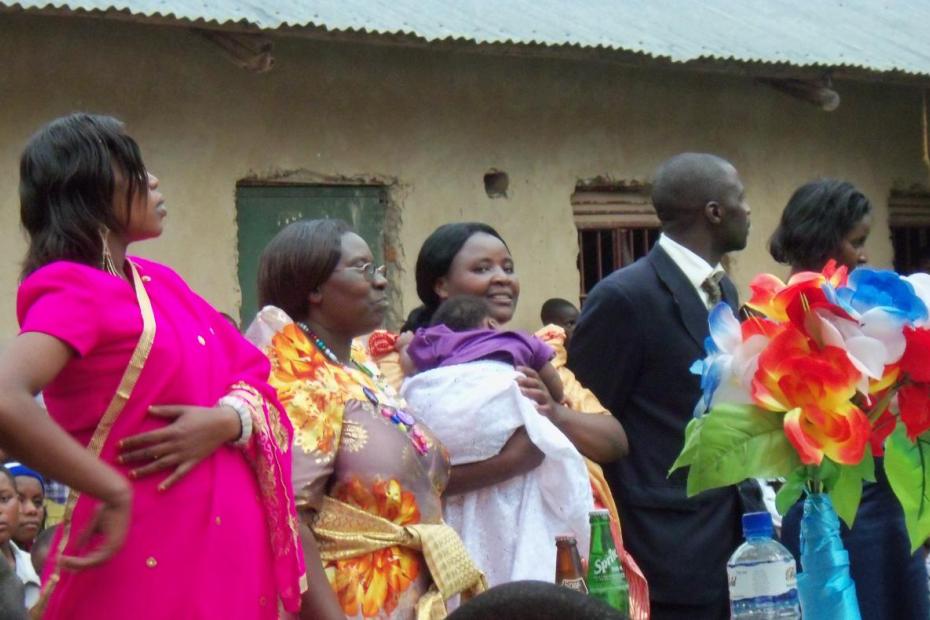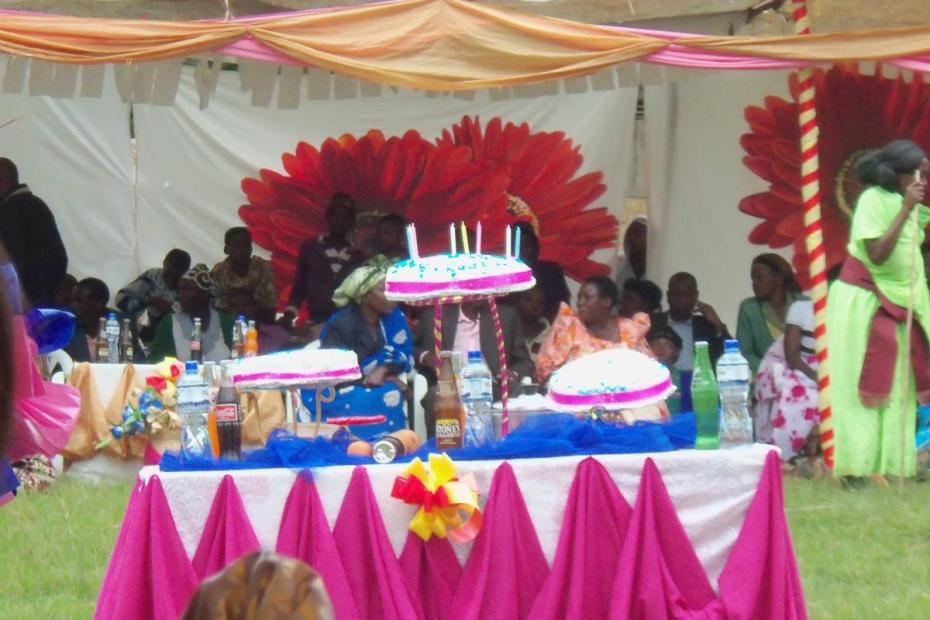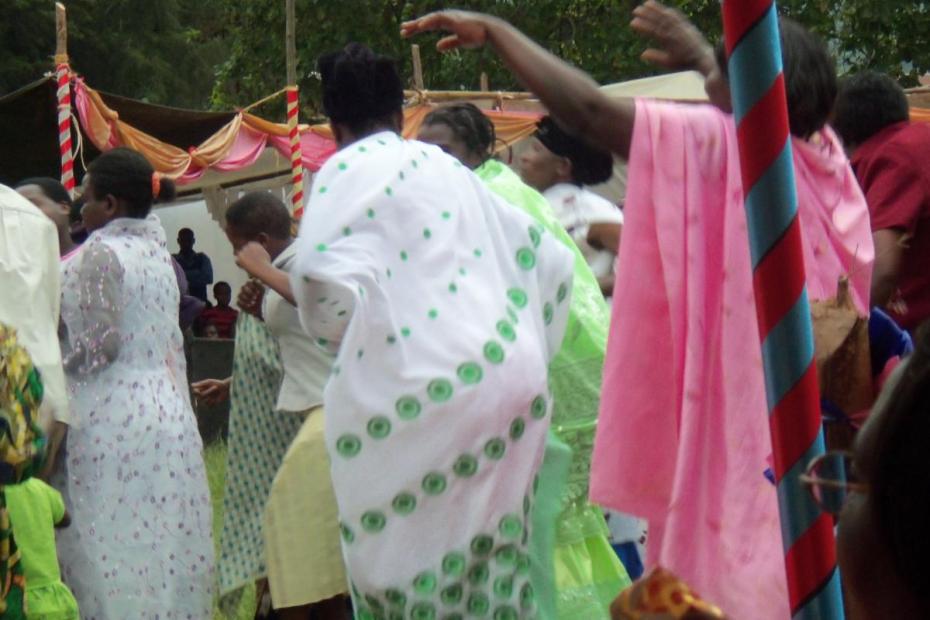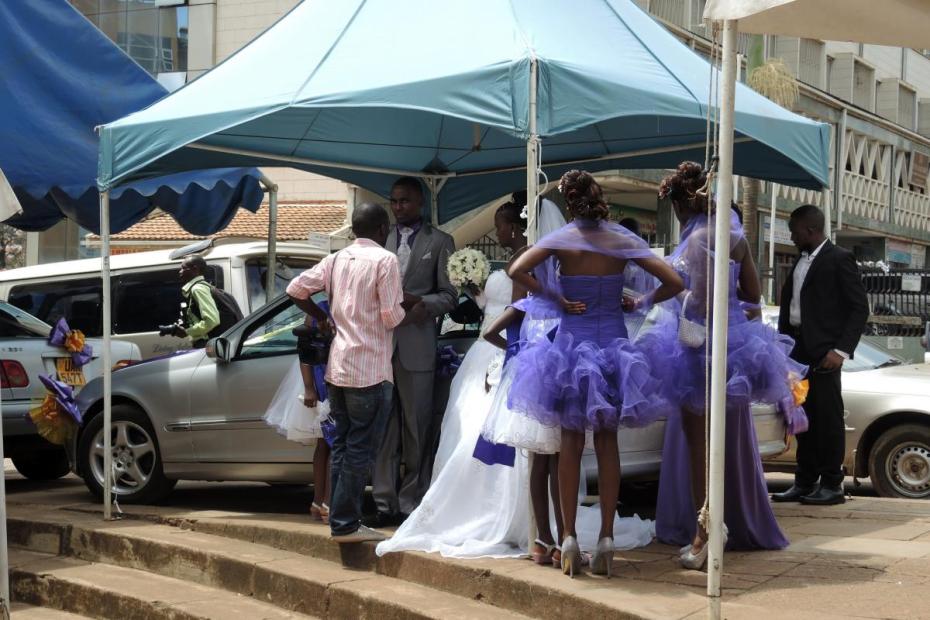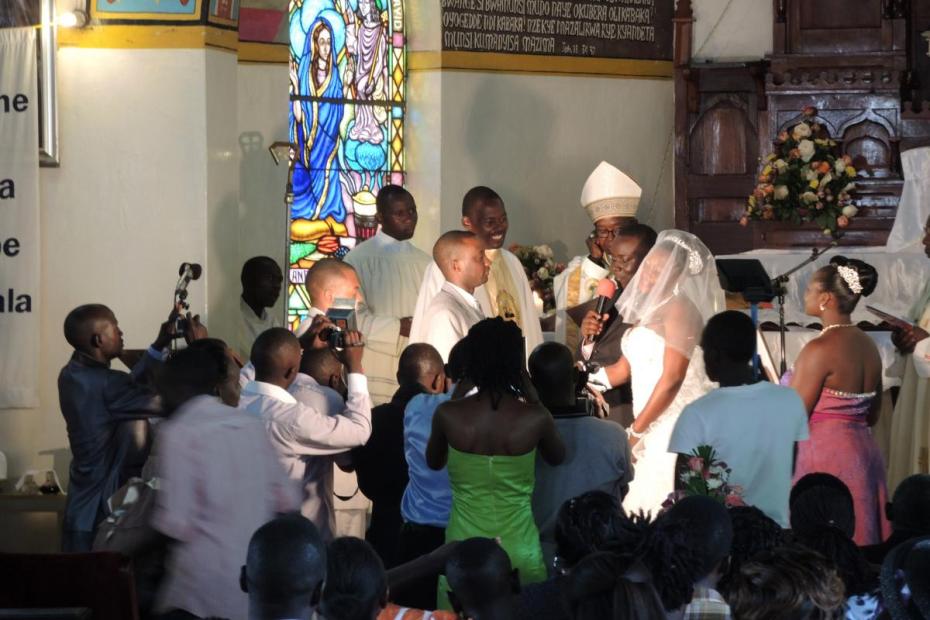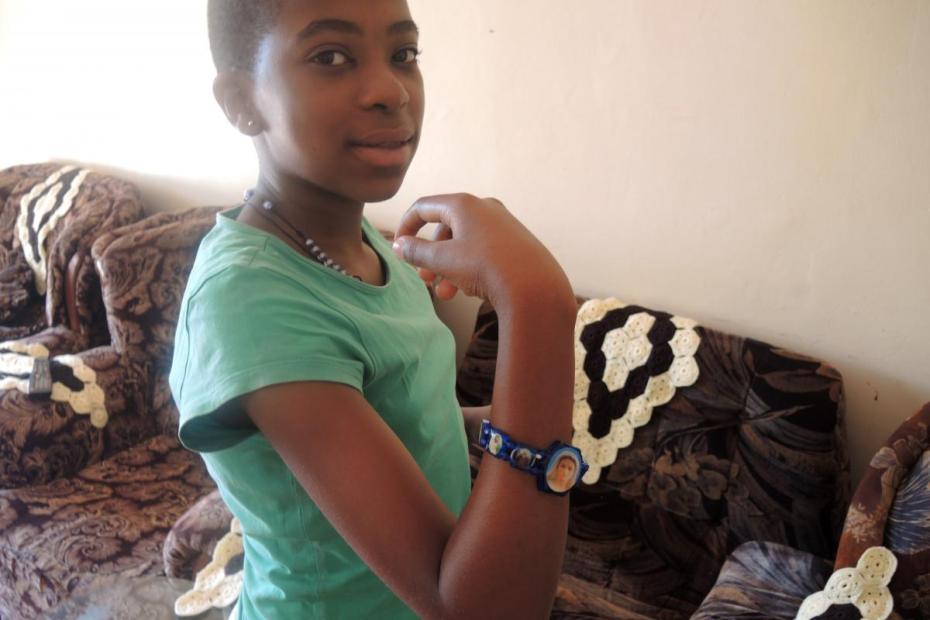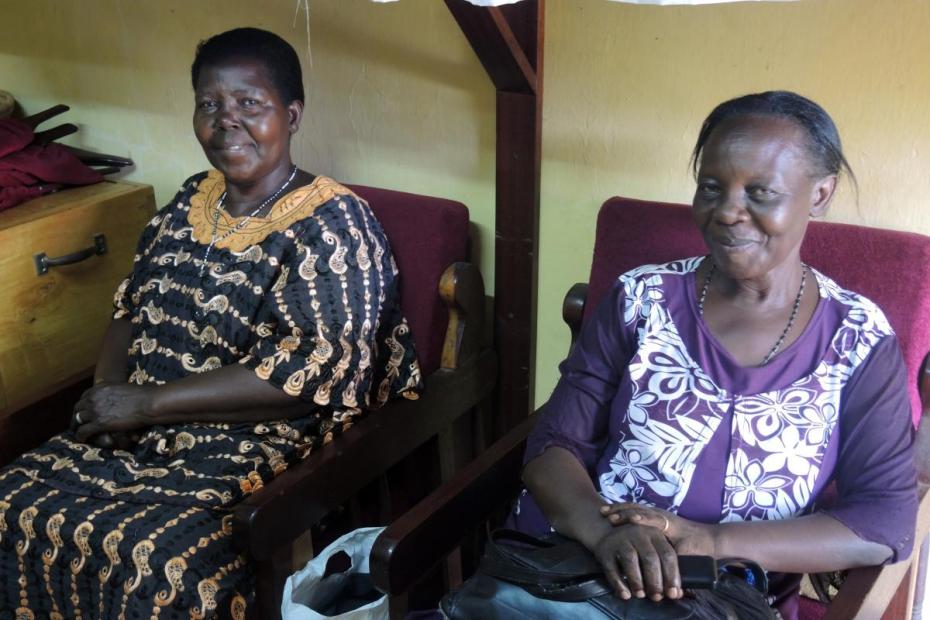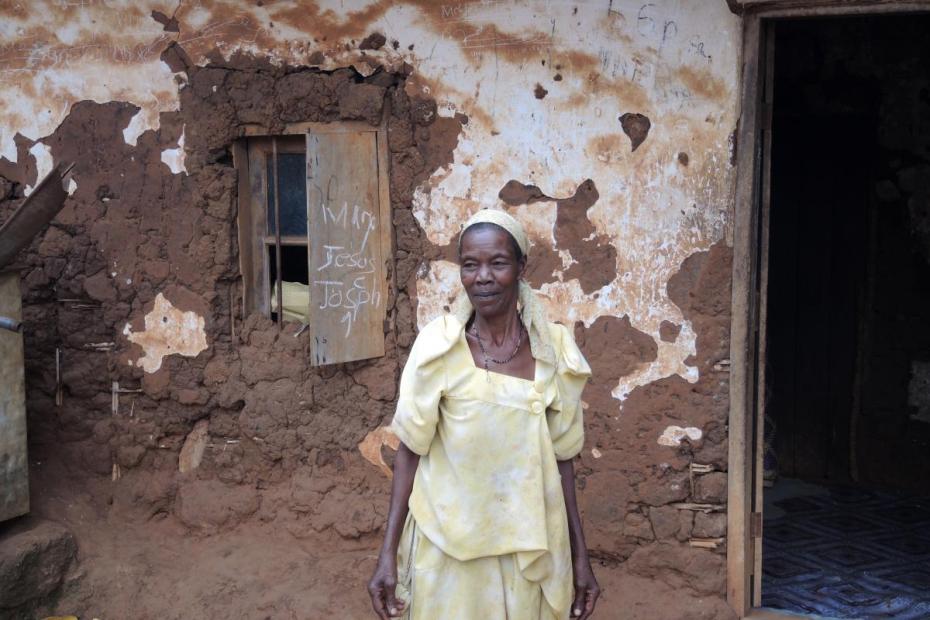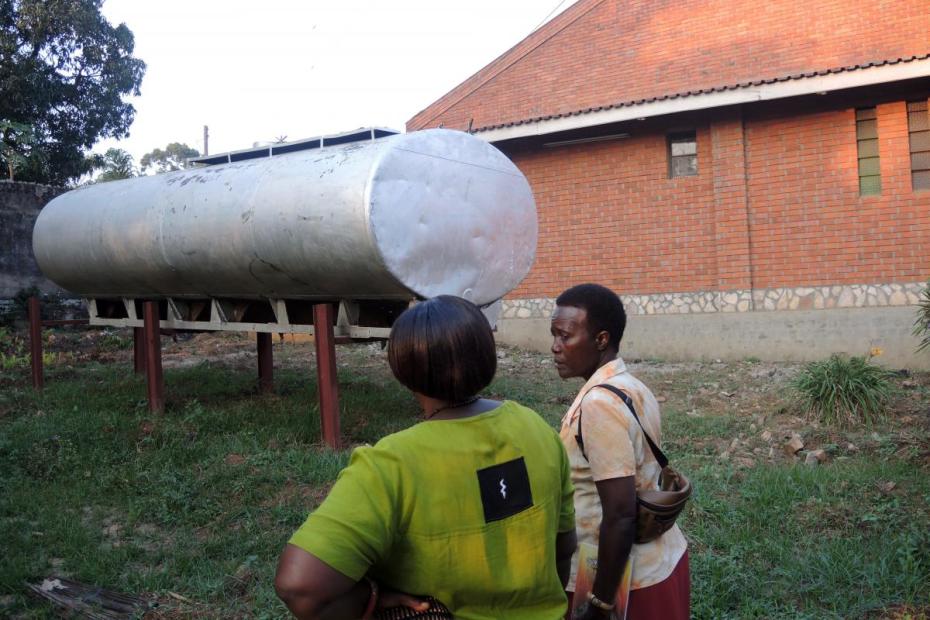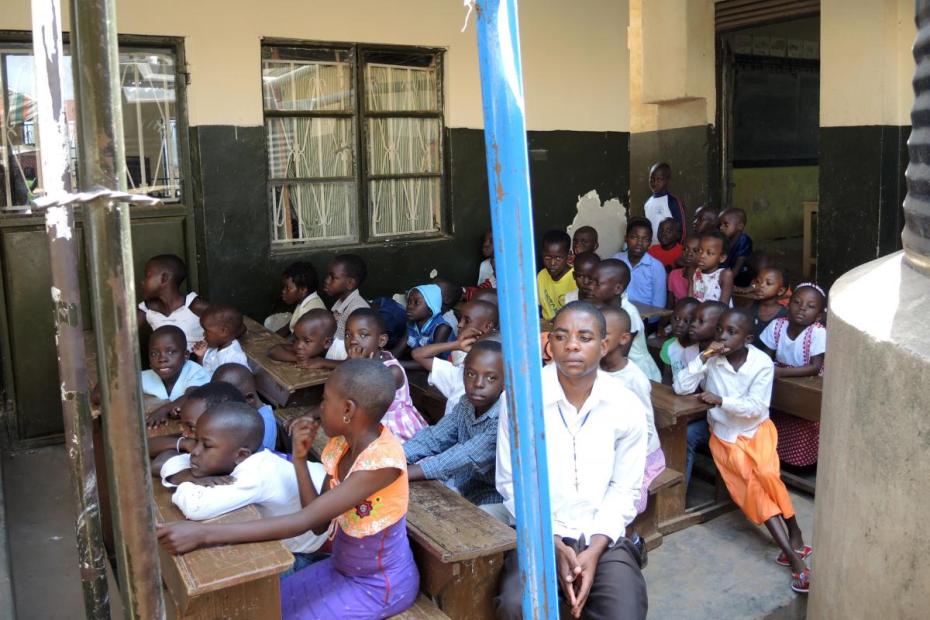While extended clans play a role in the lives of families in many ethnic groups in Uganda, urban living has eroded some of these links. In Kampala,1 interviewees told stories of family life very much in transition from traditional ways, even as traditional expectations endured in other ways. Urban Ugandans lived outside the daily web of expectations and interactions that comprise village life, even though they retain some responsibility to help support and visit parents at home. While rural norms governing marriage remain strong, interviewees suggested that a third of children in Kampala are born to single mothers.
Every family visited for this project, including devout Catholic ones, has extended family living with them, usually the children of one family member’s siblings who died, most often from HIV. In a few cases, too, a female sibling with children was taken in because her husband had abandoned them. Grandmothers, Jjajas,2 who often have few means of support, often have to take in grandchildren for similar reasons. The many extended family households point to both the strength and vulnerability of family structures in contemporary Ugandan life. Some children are said to have been left on the street to fend for themselves, but a remarkable number find homes with extended family.
Marriage
Marriage is an enormously important social event in Ugandan traditional cultures, one that can bring together large groups of celebrants. Men and women are free to choose their own partner, but a marriage must then be negotiated with the family of the bride. Churches are not willing to marry a couple without the express consent of both parents. Both Muslims and Christians are quite likely to marry within their own group. 90% of Christians marry another Christian.3 While exact rules vary from one ethnic group to another, generally the couple cannot come from the same clan. Clans are generally very large — among the Baganda people, a population of 5.8 million people is distributed among only 46 clans. Family members research each other’s family backgrounds before any approval is given.
A male suitor is expected to pay a bride price, set by terms that differ from culture to culture. The bride price shows no sign of disappearing as a cultural phenomenon. It is seen as a recompense for the cost and work that a parent put into raising a child, though the price is raised depending on the perceived qualities of the bride and the parents’ bargaining power. It also recognizes that after marriage, a bride is “lost” to the household she leaves, and becomes part of the husband’s household and clan.
One young man, a university graduate, reported that many brides’ fathers have grown more extravagant in terms of their expectations. On the other hand, a wedding and celebration is valued even more, so sometimes the father breaks down and lets the wedding go forward and lets the bride price be paid in installments after that. The rules around bride prices are traditional matters that the Church is not directly involved in. Culturally, such rules are deeply ingrained as ethical values, and the Church has not influenced them.
In practice, urban couples sometimes do live together before getting married. According to Pew studies, 10% of the adult population lives in unmarried relationships. 4 In many village settings, people would shun anyone who lived in such a circumstance, but in urban settings it is said to be more common. In Kampala, some claim, almost a third of children are born to single women. University students said that in at urban universities, where students are away from parental controls, Christian rules about sexual relationships were frequently ignored. Party culture often dominates, and many girls involve themselves in financially beneficial relationships with married men.
Weddings are a communal endeavor, insofar as many people contribute to the cost, since a young couple usually cannot be expected to cover this cost themselves. As is true in many cultures, though, the ability to fund a large wedding reception is a point of pride for families as a means of showing and sharing their prosperity. The church marriage itself may not be well attended, but it is important that the festivities begin there with God’s blessing. The reception can be very large. In the cities, brides wear white gowns and men wear tuxedoes, while married women guests often wear traditional dresses. Because the expense of a wedding can sometimes prevent couples from getting married, Catholic churches sponsor group weddings for five or six couples to sanctify relationships that have already produced children.
Polygamy
Polygamy, which has deep roots as a cultural practice and is still overtly a part of Muslim life in Uganda, is a neuralgic issue in Uganda. Traditional marriage in Uganda includes polygamy, a practice that is legal for all citizens (men can be polygamous, but a woman could not have two husbands). Christian marriage is understood to imply that a man can only marry one woman. Though some interviewees played down its frequency, others volunteered that polygamy remains fairly common among Catholics, though usually sub-rosa. Often, they indicated, the existence of a second or even third wife and family would become public only at the funeral of the husband/father. (According to Pew research surveys, 31% of Ugandan Christian men claim to have more than one wife.)5 The desire for multiple wives was characterized repeatedly as something natural and wrong only in a Catholic context. Specific instances of polygamy seemed, among interviewees, to cause disappointment more than condemnation. It was more firmly condemned if a man had children whom he failed to care for and is especially deep if it was by a man who had a public role in the Church. One Ugandan man who asked about polygamy’s prevalence in the West was amused to learn that it is illegal there. A member of Marriage Encounter said they work hard “to help couples understand the sacramental and holy nature of marriage better,” but that they were also a relatively small group.
One committed Catholic reported, “Some priests are not celibate, and have women and children. People know it commonly.” For her, this is not ideal, or good. Her response was to try to avoid them for confession and to ask around instead for the name of a priest who is celibate. A man suggested that it happens, but that he and others are deeply aggrieved at word of it.
Urban Ugandans, including young women, said that female circumcision, once common in some indigenous cultures, is rare, limited to a few rural tribes. The government has strongly discouraged it.
Homosexuality
Ugandans have a deep aversion to homosexuality. In recent years there have been efforts to impose the harshest legal penalties possible on homosexuals.6 An act that imposes life in prison for same-sex relations was passed in 2014 but ruled constitutionally invalid. By an almost unanimous parliamentary vote the law was reimposed in 2023 with provisions that could warrant the death penalty. Efforts to "promote" homosexuality are now punishable by up to 20 years in prison. All citizens are required by law to report any known violations of the law. Catholics interviewed in 2014 for this project found it incomprehensible that a society could allow homosexuality to exist, citing tradition, the Bible, “the laws of God,” and a threat to the continuance of the human race. In this regard, their opinion mirrors that of the population at large. The story of the Ugandan martyrs, which is quite central to Catholic identity, reinforces the sense that homosexuality is anathema. Accounts of their death repeat that some of the martyrs were killed for their refusal, as Christians, to commit sodomy for the king, or to condone his practice of it.
Gender and family
Men and women, including husbands and wives, are strongly discouraged from showing physical affection in public, but persons of the same sex may sometimes be seen touching one another, a fact which in itself is taken to have no homoerotic connotations.
In rural areas, families are known to have larger families, sometimes very large. In cities, Catholics generally expect to have 2-4 children if they expect to put them through school and pay school fees. Even poorer families without those educational aspirations limit family size in cities, since they live in one or perhaps two rooms, and have less space for children to wander.
Women have achieved notable positions in public life and politics in Uganda. Still, Ugandans interviewed for this project made no pretense about equality of gender roles in the family, even as they regretted instances of abandonment or abuse. Many differences are perceived as natural, and there was often concern expressed about instances where women’s achievement and independence threatened to undermine the family and the natural order.7 A good wife is expected to care well for her husband, to cook and to look after the children. Humility is a value expected of women and children. In Buganda, they kneel before an elder or a more respected person, though men do not kneel. A man is expected to be the head of the household and to be able to support it. Men do not cook. Women assert that a disproportionate share of family responsibility usually falls to them. Men in cities often cannot find work that fit their education level, but women often have even fewer work opportunities and lower pay, both in cities and villages. Women find it especially difficult to support themselves or families on their own. In urban areas, women often have to deal with abandonment by husbands who give up and leave the family alone. This leaves many women to want to have fewer children.
Women interviewed said that they saw many opportunities for women’s leadership in the Church, notably by lay catechists, who have significant status, but also in the many lay associations. Men’s leadership in the clergy did not bother these women, because it was part of the Church’s history from Jesus’ time on, and because they saw the responsibilities of priesthood as best-suited to men.
Read More:
Alice P. Tuyizere, Gender and Development: The Role of Religion and Culture (Kampala, Makerere University / Fountain Publishers, 2007).
Robert Wyrod, “Between Women’s Rights and Men’s Authority: Masculinity and Shifting Discourses of Gender Difference in Urban Uganda,” Gender and Society, 22:6 (2008): 799-823.
- 1Research on Uganda in Catholics & Cultures currently focuses on the urban area of Kampala, where the culture is largely defined by the Baganda people (Luganda speakers of the kingdom of Buganda) though Ugandans of many other ethnic groups also live in Kampala.
- 2Jjaja is a term of affection for grandmother or grandfather, an honorific title that the whole community uses.
- 3 Pew Forum on Religion and Public Life, “Tolerance and Tension: Islam and Christianity in Sub-Saharan Africa,” 260. See http://www.pewforum.org/files/2010/04/sub-saharan-africa-full-report.pdf for the report and African comparison data.
- 4 Pew Forum on Religion and Public Life, “Tolerance and Tension: Islam and Christianity in Sub-Saharan Africa,” 259. See http://www.pewforum.org/files/2010/04/sub-saharan-africa-full-report.pdf for the report and African comparison data.
- 5 Pew Forum on Religion and Public Life, “Tolerance and Tension: Islam and Christianity in Sub-Saharan Africa,” 318. See http://www.pewforum.org/files/2010/04/sub-saharan-africa-full-report.pdf for the report and African comparison data.
- 6At the time of the interviews, the theme was very much in the news, as the parliament had passed a law giving a life sentence for homosexual acts, and severely punishing those who fail to report a homosexual.
- 7The comments of Catholic interviewees fit a pattern that Robert Wyrwod found in his larger ethnographic study in Bwaise, a low-income neighborhood of Kampala. Some men in the study were “reactionary” in his typology, but even those who tried to find a way to negotiate the newer understanding of women’s political rights inevitably saw inherent differences in roles and home responsibilities. Robert Wyrod, “Between Women’s Rights and Men’s Authority: Masculinity and Shifting Discourses of Gender Difference in Urban Uganda,” Gender and Society, 22:6 (2008): 799-823.
